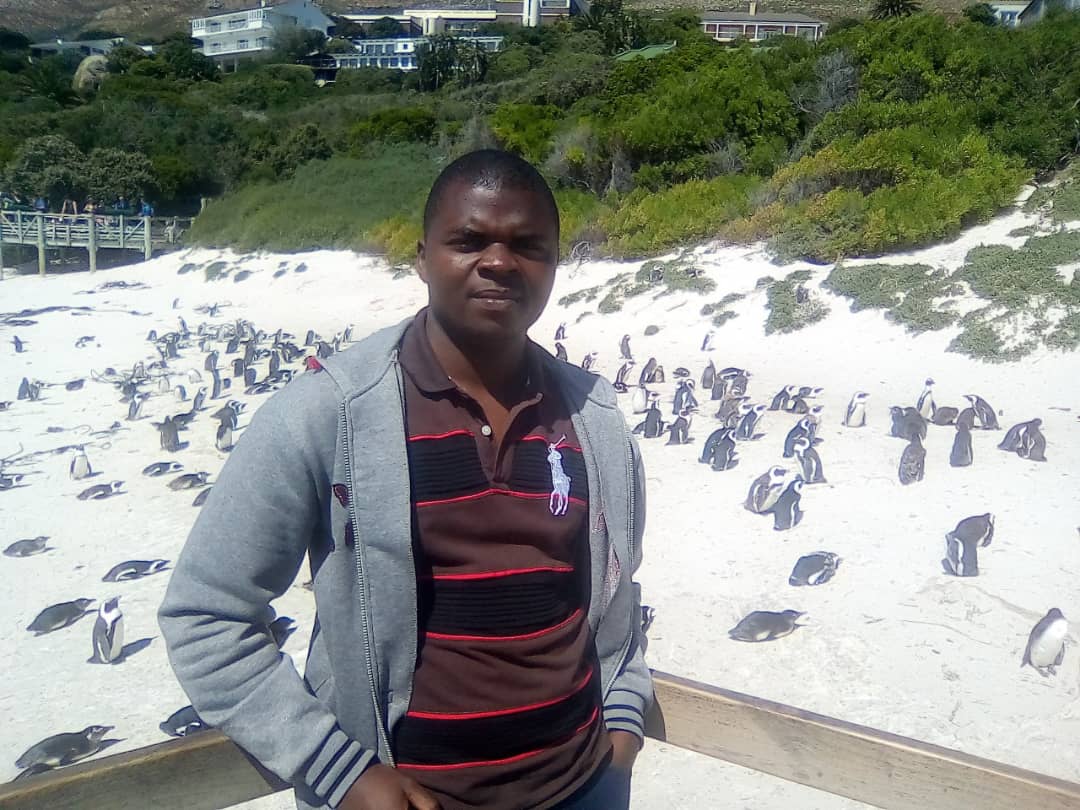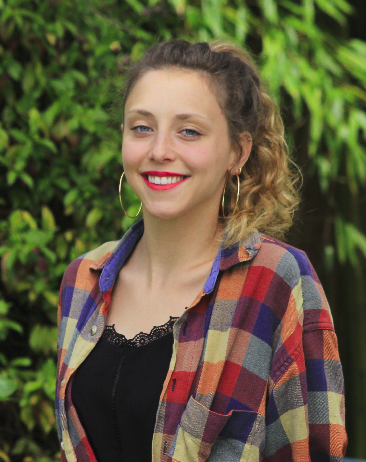people
members of the lab or group

Some of us at Saint-Jacut-de-La-Mer, one hour away from Rennes

After completing a MSc in PDEs and applications, Hugo started a PhD on population dynamics at Sorbonne Université. His manuscript, titled "Étude de données et analyse de modèles intégro-différentiels en biologie cellulaire", mostly contains topics related to analysis of linear and nonlinear PDEs describing structured populations, but also include some work on data analysis and stochastic modelling in collaboration with biologists.
During his first postdoctoral work at INSERM, Hugo discovered mathematics applied to cancer research. Although this period was rich in learning, the topic and methods did not really match his tastes. On the contrary, the current projet on behavioral epidemiology is the perfect mix of interdisciplinary discussion, modelling, mathematical analysis and simulation. This field aims at coupling models stemming from epidemiology with equations accounting for human behavior, and is to date mostly concerned with human health. One of of Hugo's current project within the group consists in adapting such modelling to plant disease epidemiology and its specific features, such as spatial spreading and farmers' preferences. This work is funded by the Chair "Modélisation Mathématique et Biodiversité" of Veolia Environnement-École Polytechnique-Muséum national d'Histoire naturelle-Fondation X. In the future, other aspects more related to human health will be nurtured in the Centre International en Santé Mondiale (international center for global health) that has been recently created in Rennes.
Consistent with his research interests, Hugo is cofunder and coorganizer of the monthly seminar of mathematics applied to living matter of Rennes University. Each sessions gives the floor to a mathematician or modeller and an experimentalist on a shared topic, in order to stimulate interdisciplinary discussion.
When not doing mathematics, Hugo enjoys playing field hockey and board games, as well as reading books and listening to music, while tasting delicious craft beers.
During his first postdoctoral work at INSERM, Hugo discovered mathematics applied to cancer research. Although this period was rich in learning, the topic and methods did not really match his tastes. On the contrary, the current projet on behavioral epidemiology is the perfect mix of interdisciplinary discussion, modelling, mathematical analysis and simulation. This field aims at coupling models stemming from epidemiology with equations accounting for human behavior, and is to date mostly concerned with human health. One of of Hugo's current project within the group consists in adapting such modelling to plant disease epidemiology and its specific features, such as spatial spreading and farmers' preferences. This work is funded by the Chair "Modélisation Mathématique et Biodiversité" of Veolia Environnement-École Polytechnique-Muséum national d'Histoire naturelle-Fondation X. In the future, other aspects more related to human health will be nurtured in the Centre International en Santé Mondiale (international center for global health) that has been recently created in Rennes.
Consistent with his research interests, Hugo is cofunder and coorganizer of the monthly seminar of mathematics applied to living matter of Rennes University. Each sessions gives the floor to a mathematician or modeller and an experimentalist on a shared topic, in order to stimulate interdisciplinary discussion.
When not doing mathematics, Hugo enjoys playing field hockey and board games, as well as reading books and listening to music, while tasting delicious craft beers.

Israël Tankam C. joined our team in January 2023, specializing in improving potato resistance to cyst nematodes. He is interested in developing, through mathematical models, sustainable strategies for managing the nematodes by combining plant resistance with crop rotation and biocontrol methods.
With a background in Applied Mathematics, Israël specializes in dynamical systems, mathematical modelling, optimization, and their practical applications in plant epidemiology and crop protection. He received the Ovide Arino Outbreak Award (OAOA) in 2021 for his PhD on sustainable management of banana soil-borne pests. His thesis, "Modelling, analysis, and control of plantain plant-parasitic nematodes," introduces advanced methods for managing soilborne pests through fallows, revealing novel population dynamics and global optimization algorithms.
During his previous postdoc, Israël modelled the epidemiology of transboundary cassava diseases in Central and West Africa, working with the Epidemiology and Modelling Group at the University of Cambridge and the Central and West Africa Virus Epidemiology for Food Security (WAVE).
In his free time, Israël enjoys painting, playing music, working out, cooking and reading manga.
With a background in Applied Mathematics, Israël specializes in dynamical systems, mathematical modelling, optimization, and their practical applications in plant epidemiology and crop protection. He received the Ovide Arino Outbreak Award (OAOA) in 2021 for his PhD on sustainable management of banana soil-borne pests. His thesis, "Modelling, analysis, and control of plantain plant-parasitic nematodes," introduces advanced methods for managing soilborne pests through fallows, revealing novel population dynamics and global optimization algorithms.
During his previous postdoc, Israël modelled the epidemiology of transboundary cassava diseases in Central and West Africa, working with the Epidemiology and Modelling Group at the University of Cambridge and the Central and West Africa Virus Epidemiology for Food Security (WAVE).
In his free time, Israël enjoys painting, playing music, working out, cooking and reading manga.

Yves Fotso F. joined our team in December 2023 to work on modelling the dynamics of potato cyst nematodes in order to optimise the use of trap plants, under the supervision of Frédéric Hamelin and François Castella (IRMAR and MinGus-INRIA team, Rennes). He is interested in exploring various biological control strategies against potato cyst nematodes and their combination. In particular, the use of trap plants and the introduction of artificial root exudates to stimulate the hatching of nematode suicides during intercropping.
Yves completed his Phd at University of Dschang in Cameroon in 2022. In his dissertation, titled « Modelling, analysis and control of coffee berry borer », he developed and analysed dynamic models describing the interactions between coffee plants and coffee berry borers in order to better understand, predict and control the damage dynamics using cost effective and environmentally friendly control strategies. Passionate about teaching, he worked at the University of Dschang as assistant professor from 2022 to 2023.
Yves specialises in dynamic systems, mathematical modelling, optimal control, optimisation and their applications in crop protection, epidemiology of plant pests and diseases, design of cost-effective and environmentally-friendly control strategies.
Yves completed his Phd at University of Dschang in Cameroon in 2022. In his dissertation, titled « Modelling, analysis and control of coffee berry borer », he developed and analysed dynamic models describing the interactions between coffee plants and coffee berry borers in order to better understand, predict and control the damage dynamics using cost effective and environmentally friendly control strategies. Passionate about teaching, he worked at the University of Dschang as assistant professor from 2022 to 2023.
Yves specialises in dynamic systems, mathematical modelling, optimal control, optimisation and their applications in crop protection, epidemiology of plant pests and diseases, design of cost-effective and environmentally-friendly control strategies.

Pauline is an ecologist with expertise in the design of epidemiological models and in the mathematical analysis of ordinary differential equation systems. She has specific interest in host-pathogen interactions and their population and evolutionary dynamics. She wants to continue to contribute to the advancement of these areas of research, and extend her skills to other ecologocial methods and mathematical formalisms.
From 2020 to 2022, she carried out a PhD thesis in plant eco-epidemiology with Frédéric in Rennes, France. Her thesis, titled « Modeling epidemic dynamics with immune priming within varietal mixtures », focused on the effects of genetic diversity within crops with the aim of minimizing the prevalence of plant diseases. In particular, models were able to show that triggering priming within mixtures makes it possible to reduce the prevalence of the disease compared to a pure culture of resistant plant. In addition, Pauline's models make it possible to evaluate the optimal proportions of varieties to strengthen the effectiveness of mixtures and increase the durability of the resistances used.
Pauline is currently a post-doctoral researcher at Rennes School of Public Health, working on Covid-19 and influenza. She continues to collaborate with Frédéric on theoretical approaches linked to mixtures of plant varieties and species.
From 2020 to 2022, she carried out a PhD thesis in plant eco-epidemiology with Frédéric in Rennes, France. Her thesis, titled « Modeling epidemic dynamics with immune priming within varietal mixtures », focused on the effects of genetic diversity within crops with the aim of minimizing the prevalence of plant diseases. In particular, models were able to show that triggering priming within mixtures makes it possible to reduce the prevalence of the disease compared to a pure culture of resistant plant. In addition, Pauline's models make it possible to evaluate the optimal proportions of varieties to strengthen the effectiveness of mixtures and increase the durability of the resistances used.
Pauline is currently a post-doctoral researcher at Rennes School of Public Health, working on Covid-19 and influenza. She continues to collaborate with Frédéric on theoretical approaches linked to mixtures of plant varieties and species.